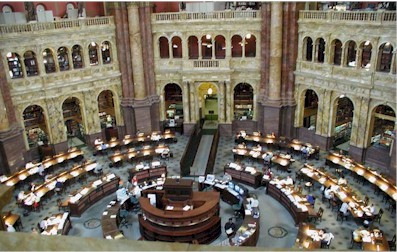Prior to my admission to the Information School, I completed much of my work independently. I had been an independent editor and writer for three years, and, while I had colleagues to discuss pedagogy, most of my teaching did not have a collaborative element to it. Thus, I was surprised when I realized that group projects were frequently assigned. The group projects proved useful not only in terms of the product that we delivered but also in respect to my development as a librarian. The dynamics of working in a group are similar to those of serving on a committee. Over the past year, I developed leadership skills by taking the lead and assuming responsibility for the completion of tasks that would serve a committee or group.
IPeer
IPeer is a program designed to introduce incoming students with those of us who have been at the iSchool for some time. The founders of the program graduated this year, and I signed on to be an administrator. Along with three other students, I took the helm of the iPeer program, and we made significant changes to nearly every aspect of iPeer. We redesigned the web site, developed a new method of using questionnaires, created material to promote iPeer for both incoming and veteran students, and drew up instructional guides to help facilitate conversations.

The Library of Congress
I was responsible for that last task. During our first meeting, I pointed out that veteran students may not be sure of what to bring up during conversations, particularly if such students had become so familiar with procedures that those details seemed like information everyone already knew. With that in mind, I created a document to provide some guidance. This document was sent to students after they signed on to be mentors with iPeer. I was particularly well-suited for this aspect of iPeer since I was the sole returning student on the committee; the other students were still in their first year and rather more concerned with reaching out to incoming students. By voicing the probable needs the mentors, I managed to ensure that iPeer will serve both incoming and veteran students.
By taking the lead with iPeer, I not only enhanced my leadership skills but I also felt like I was providing a service to the students who would come after me. Instead of being involved in a mere group project, I was able to chart the direction of a program that will continue after I leave. During my work with iPeer, I knew that my leadership would lay the foundation for the future of the program, and it would be instrumental in orientating new students for a long time to come. This sense of making a difference for my future colleagues was merely one of the highlights of becoming an iPeer administrator. The responsibility of helping design a new system made me feel like I was contributing to the community of librarians, and this feeling was quite satisfying.
Information Literacy Steering Group
At the University of Washington Libraries, I was an active member of the Information Literacy Steering Group. This group tackled a number of projects over the past year; we arranged for a speaker to come to campus, discussed how to employ creative pedagogy in library instruction, developed ways to increase information literacy on campus, and redesigned web pages that explained library services. I was particularly involved in that last project where I took the initiative when considering the organization of the pages that detail library services for faculty. My ideas helped to shape the restructuring of pages, a project that is still under construction, and my contributions and initiative were well-received by the committee members.
Through my association with the Information Literacy Steering Group, I volunteered to work on the redesign of a flyer that is distributed to incoming students at the University of Washington. During our discussion of the flyer, I suggested that we could emphasize the services provided by the libraries about which students may not know. For instance, students would know to come to the library to conduct research or use a computer, but they may not be aware that they could also rent DVDs or read popular magazines. This idea was immediately taken up by other group members, and it helped shape the direction of the flyer. While the flyer itself is still under construction, I prepared the welcome statement that sets the tone for the brochure. By presenting my ideas and following through with a concrete document, I helped to steer the development of the flyer.

The Library of Congress
My work with the Information Literacy Steering Group not only helped me to affirm my commitment to increasing literacy but also showed me that libraries have to participate in public relations. Both the website and the informational flyer were designed to introduce people to library services and make them interested in using the library's resources. Because most libraries constantly face budget cuts, it is imperative that librarians know how to convey the value of their services. However, as one committee member pointed out, librarians in general are not given to self-congratulation, especially because the smooth operation of a library is invisible to most people. By becoming involved in these projects, I became more comfortable with promoting library services and more aware of the necessity of singing one's own praises. By working on these projects, I have started to learn how to draw attention to one's accomplishments, a skill that all librarians need when defending their programs.
Leadership Toolkit
For a class on management, we were assigned a group project in which we would design tools that managers might use when faced with a particular program or situation. For instance, a tool for a manager who is soliciting volunteers might consist of an application form with specially designed questions to help the manager select appropriate candidates. My group focused on a much larger event: Dia de los Ninos. Staged annually by the Multnomah County Library System, Dia de los Ninos is a week-long celebration of bilingualism that takes place at eight locations in Portland.
To create a toolkit for the entirety of such a program would overreach the parameters of the assignment by no small margin, so our group decided to focus on one aspect of the Dias de los Ninos event and design tools specifically for event leaders. Our toolkit enables the leaders to delegate tasks and organize a myriad of projects that would have to come together for this event to take place. We designed a communications chart, a project task list, a staffing plan, and an organizational calendar as well as a hierarchy of plans, a resource assessment form, and a project evaluation questionnaire. The creation of these tools gave us experience with how to not only stage such an event but also organize committees and take charge of the project.
By aiding in the construction of a toolkit for project leaders, I learned much about leading a library program. The development of concrete tools enabled me to understand how to ensure that a program is organized and staged smoothly. Because librarians are constantly forming programs to serve their patrons, this experience will be quite useful when I take on the leadership role to design and orchestrate a program. By mapping out a plan for a significant library event, I feel confident that I will be able to take the lead when I have the opportunity to become involved in other programs.